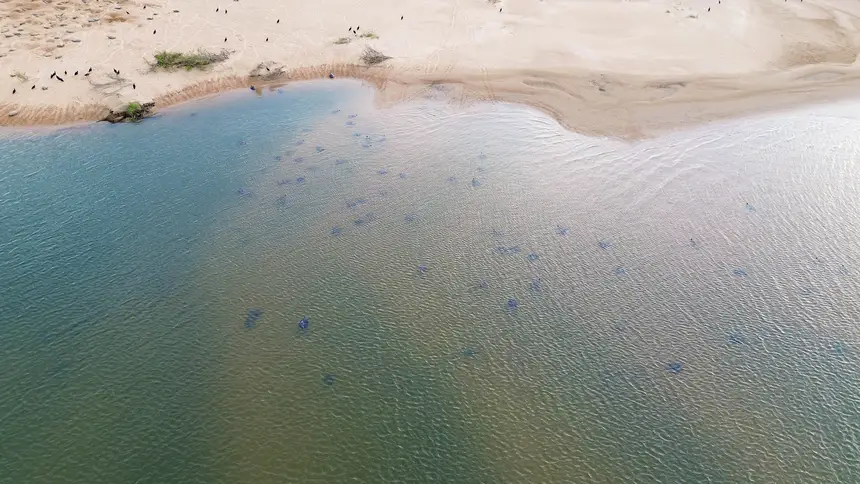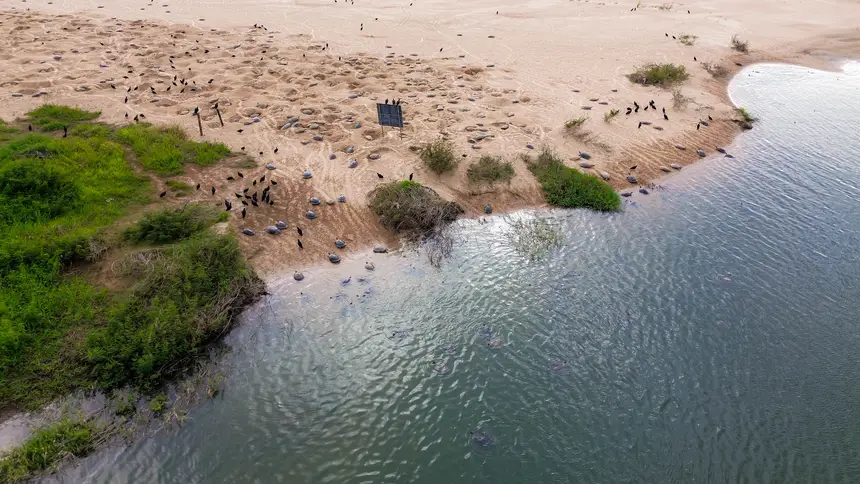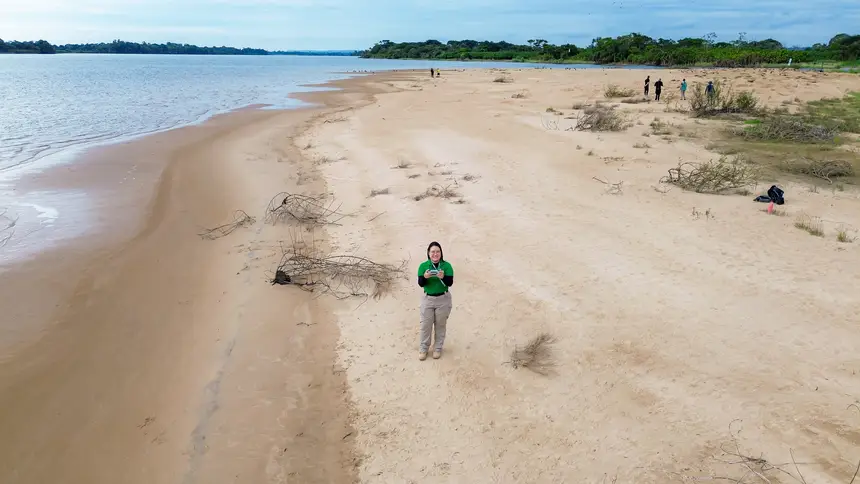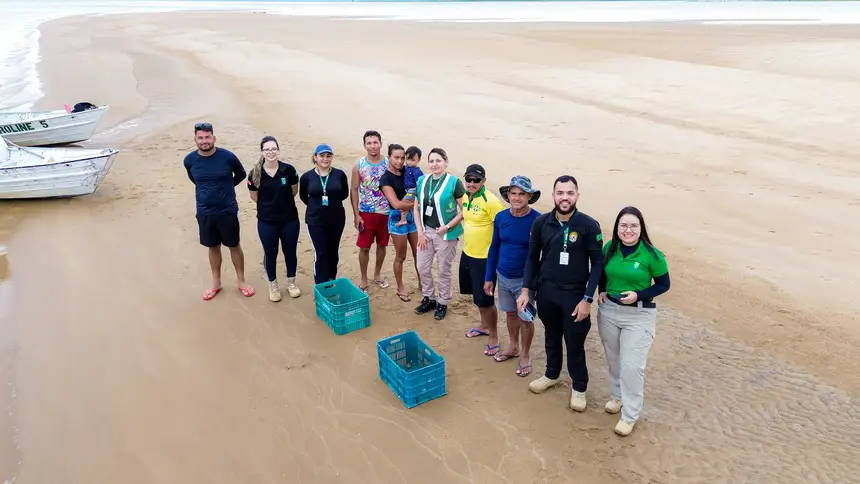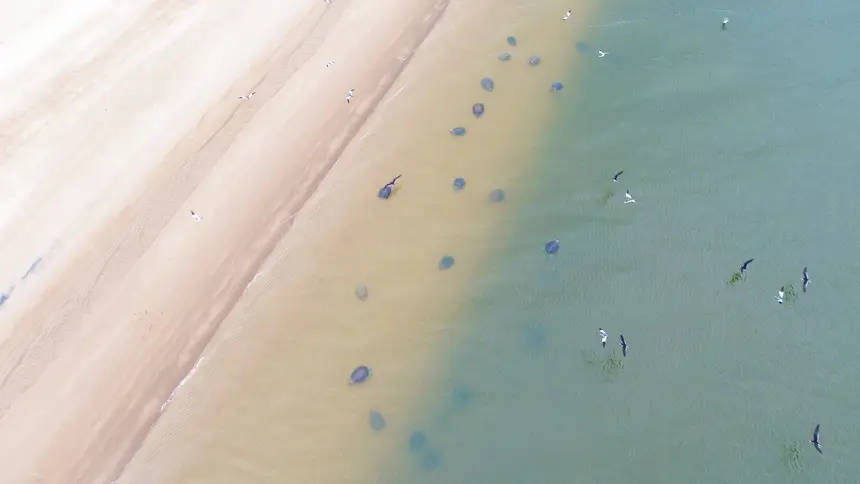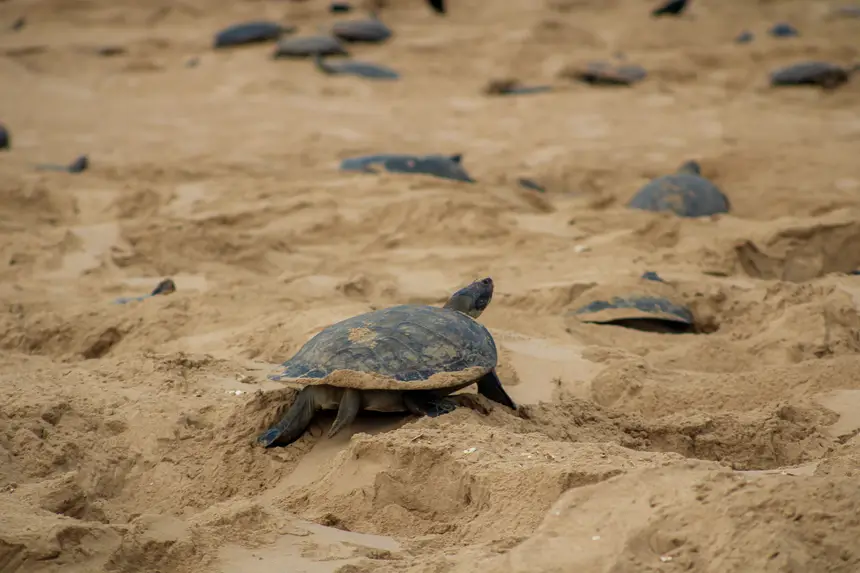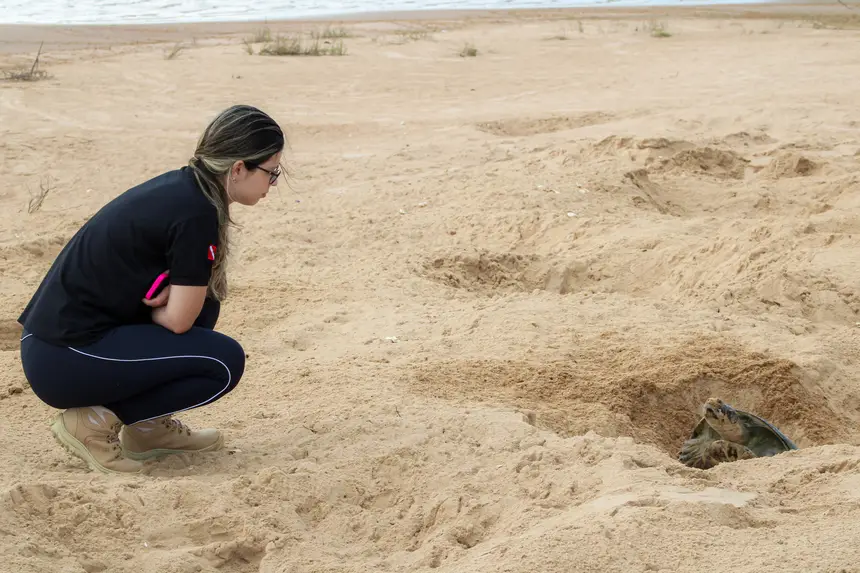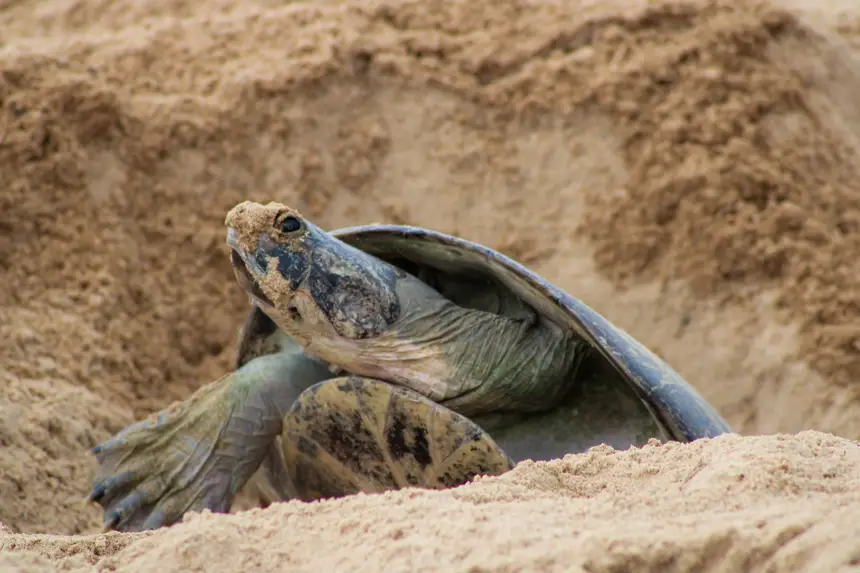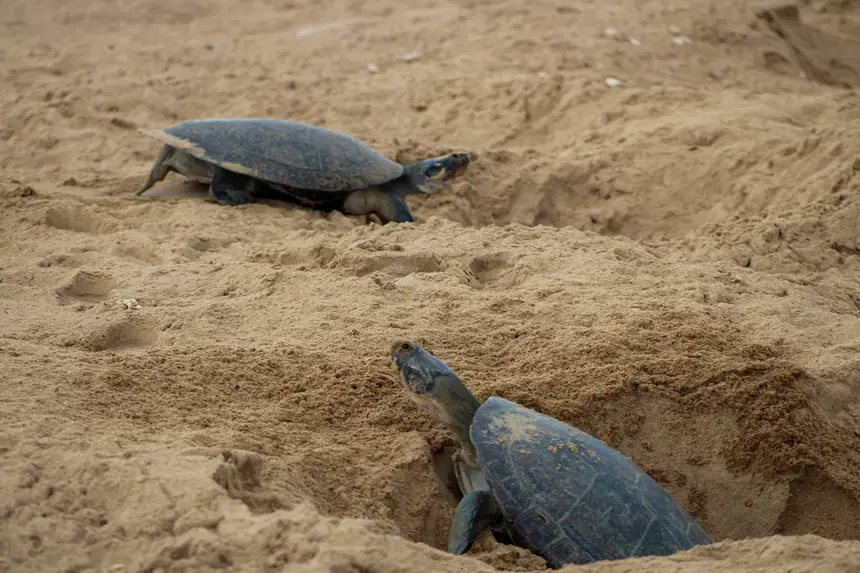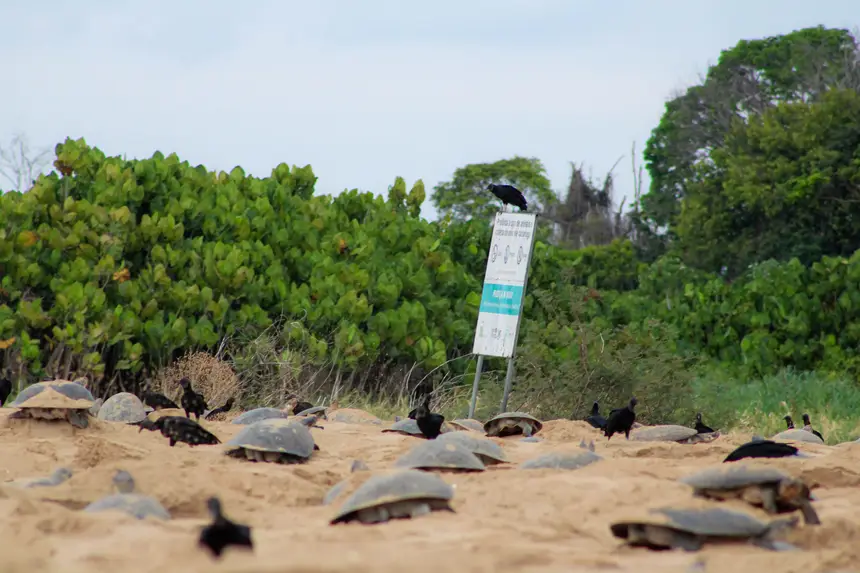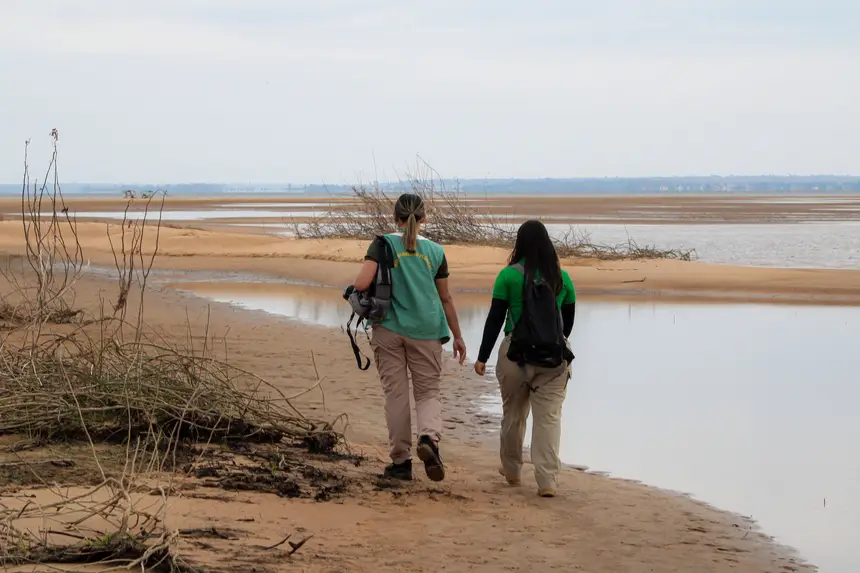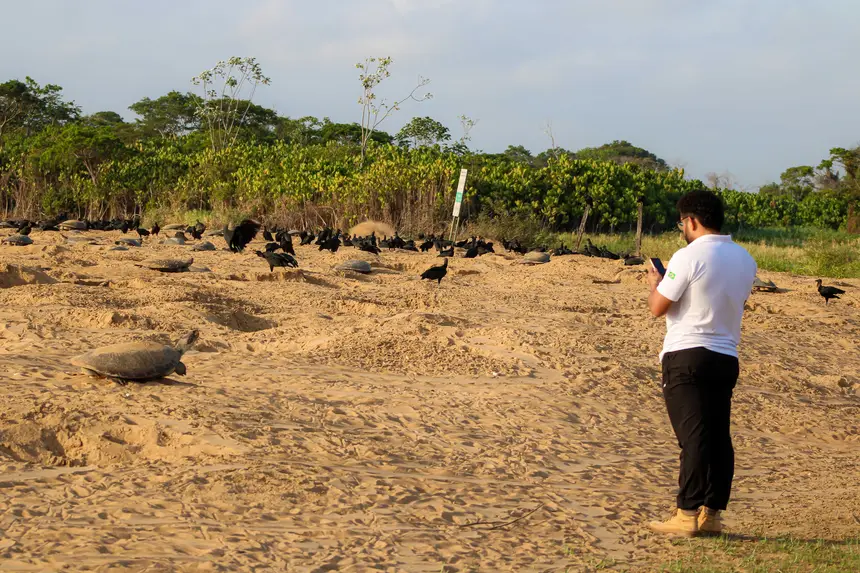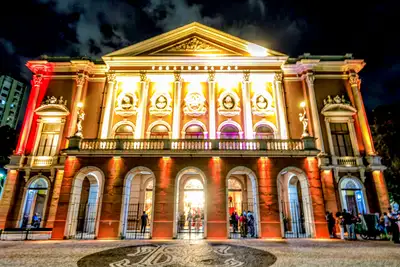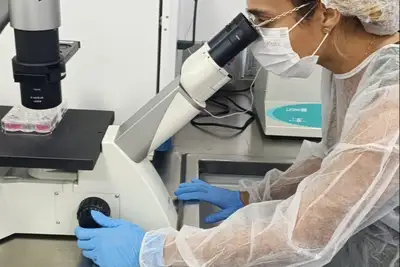Tabuleiro do Embaubal receives around 300 thousand turtles for the annual nesting at the Xingu River
The conservation unit managed by Ideflor-Bio annually hosts thousands of female turtles, tracajás, and pitiús that ascend the Xingu River in search of ideal beaches to lay their eggs.
During the months of September and October, the Tabuleiro do Embaubal Wildlife Refuge, located in the municipality of Senador José Porfírio, in the southwest of Pará, becomes the setting for one of the largest natural spectacles in the Amazon: the nesting period of the chelonians. The conservation unit, managed by the Institute of Forest Development and Biodiversity of the State of Pará (Ideflor-Bio), annually hosts thousands of female turtles, tracajás, and pitiús that ascend the Xingu River in search of ideal beaches to lay their eggs.
The nesting occurs with slight variations depending on the weather and the water level of the river. Among the species that arrive at the site are the Amazon turtle (Podocnemis expansa), the tracajá (Podocnemis unifilis), and the pitiú (Podocnemis sextuberculata). Among them, the Amazon turtle is the most numerous, as it tends to nest in large groups. This year, according to analysts from Ideflor-Bio, the nesting started later, about two weeks ago, but it is already possible to observe intense movement on the beaches.
Although it is still early to estimate precise numbers, there is an expectation that around 300 thousand turtles will lay their eggs in the region, a number comparable to years of great abundance. Research prior to 2019 recorded approximately 10 thousand females nesting at Tabuleiro do Embaubal, but natural variations and climate change have influenced the reproductive behavior of these species.
“With each nesting season, we reaffirm our commitment to life and science. It is a clear demonstration that the continuous conservation work produces concrete results for nature and future generations,” emphasizes the president of Ideflor-Bio, Nilson Pinto. He also states that Ideflor-Bio's work at Tabuleiro do Embaubal reinforces the institutional mission to conserve biodiversity and strengthen the State's presence in the Amazon.
Sexing - The hatching of the eggs occurs, on average, 45 days after nesting, depending on the ambient temperature. Temperature, in fact, plays a fundamental role not only in the incubation time but also in determining the sex of the hatchlings: the warmer the environment, the higher the proportion of females. Therefore, the technical team expects a balance this year, after two consecutive periods of extreme heat.
“Tabuleiro do Embaubal is a true nursery for Amazonian wildlife. Each nest represents a victory for conservation and the State's commitment to protecting the species that depend on this natural cycle,” explains Átilla Mello, an environmental analyst at Ideflor-Bio who has been monitoring management and monitoring actions at the site for several years.
Protection - During the nesting and hatching period, the Refuge has enhanced surveillance from the State, through the Environmental Police Battalion (BPA), which works in partnership with Ideflor-Bio to control access, prevent illegal activities, and combat the illegal collection of eggs. The continuous presence of the teams helps to reduce threats to the nests and ensure the tranquility of the reproductive cycle.
“The protection of Amazonian chelonians is one of the priorities of our management and monitoring work of conservation units. Tabuleiro do Embaubal is a strategic area for the reproduction of these species and reflects the joint effort between the public authorities and local communities,” highlights Ellivelton Carvalho, director of Management and Monitoring of Conservation Units at Ideflor-Bio.


